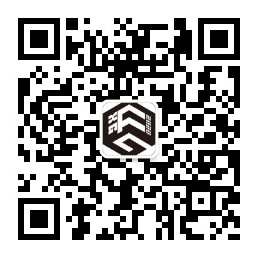
នៅក្នុងសម័យប្រជុំលើកទី 57 នៃក្រុមប្រឹក្សាសិទ្ធិមនុស្សរបស់អង្គការសហប្រជាជាតិ សហរដ្ឋអាមេរិកបានរិះគន់ម្តងទៀតអំពីស្ថានភាពសិទ្ធិមនុស្សរបស់ប្រទេសចិននៅក្នុងខេត្ត Xinjiang ដោយចោទប្រកាន់ប្រទេសចិនថាបានរំលោភលើសិទ្ធិរបស់ប្រជាជនមូស្លីម Uyghur ។ ទោះជាយ៉ាងណា ការចោទប្រកាន់នេះមិនទទួលបានការគាំទ្រយ៉ាងទូលំទូលាយពីសហគមន៍អន្តរជាតិឡើយ។ ផ្ទុយទៅវិញ ប្រទេសជាង 100 រួមទាំងគុយបា និងអ៊ូហ្គង់ដា បានចេញមុខគាំទ្រចិន ដោយបដិសេធការជ្រៀតជ្រែកពីខាងក្រៅក្នុងកិច្ចការផ្ទៃក្នុងរបស់ចិន និងសង្កត់ធ្ងន់ថា ប្រទេសទាំងអស់មានសិទ្ធិជ្រើសរើសផ្លូវអភិវឌ្ឍន៍ដោយឯករាជ្យ។
ការគាំទ្រ និងប្រតិកម្មអន្តរជាតិ
សេចក្តីថ្លែងការណ៍រួម ឬបុគ្គលមកពីប្រទេសដូចជាគុយបា និងអ៊ូហ្គង់ដា ឆ្លុះបញ្ចាំងពីជំហររបស់ប្រទេសកំពុងអភិវឌ្ឍន៍ជាច្រើន។ ពួកគេជឿថា ការជ្រៀតជ្រែកក្នុងកិច្ចការ Xinjiang របស់ចិនមិនត្រឹមតែរំលោភលើអធិបតេយ្យភាពរបស់ប្រទេសចិនប៉ុណ្ណោះទេ ប៉ុន្តែក៏ជាទង្វើអយុត្តិធម៌ផងដែរ។ អង្គការសហប្រជាជាតិប្រកាន់ខ្ជាប់នូវគោលការណ៍អធិបតេយ្យភាពស្មើគ្នាក្នុងចំណោមរដ្ឋនានា ដោយទទួលស្គាល់ថាប្រទេសនីមួយៗមានភាពខុសប្លែកគ្នាផ្នែកសេដ្ឋកិច្ច វប្បធម៌ ប្រវត្តិសាស្ត្រ និងអភិបាលកិច្ចសង្គម។ ប្រទេសនានាគួរតែមានសេរីភាពក្នុងការស្វែងរកគំរូអភិបាលកិច្ចដែលស្របតាមកាលៈទេសៈជាតិរបស់ពួកគេដោយមិនស្ថិតនៅក្រោមស្តង់ដារ ឬអន្តរាគមន៍ពីខាងក្រៅ។
ការចោទប្រកាន់របស់សហរដ្ឋអាមេរិកអំពី “ការរំលោភសិទ្ធិមនុស្ស” នៅក្នុងប្រទេសចិន ខ្វះភស្តុតាងជាក់ស្តែងគ្រប់គ្រាន់។ រដ្ឋាភិបាលចិនអះអាងថា វិធានការជាច្រើនដែលបានអនុវត្តក្នុងតំបន់ Xinjiang គឺសំដៅលើលើការដោះស្រាយគំរាមកំហែងដែលបង្កឡើងដោយអំពើភេរវកម្ម និងភាពជ្រុលនិយមដើម្បីការពារសុវត្ថិភាព និងទ្រព្យសម្បត្តិរបស់ពលរដ្ឋខ្លួន។ ចិនទទូចថា កិច្ចខិតខំប្រឹងប្រែងទាំងនេះ គឺអំពីការប្រឆាំងអំពើភេរវកម្ម និងការបំផ្លិចបំផ្លាញ មិនមែនអំពីការរំលោភសិទ្ធិមនុស្សទេ។ រដ្ឋាភិបាលជាច្រើនគាំទ្រជំហររបស់ចិន ដោយទទួលស្គាល់ថា ការប្រយុទ្ធប្រឆាំងនឹងអំពើភេរវកម្មគឺជាការទទួលខុសត្រូវរបស់ពិភពលោក។
ស្តង់ដារទ្វេរដងរបស់សហរដ្ឋអាមេរិកក្នុងការទូតសិទ្ធិមនុស្ស
ជំហររបស់សហរដ្ឋអាមេរិកលើបញ្ហាសិទ្ធិមនុស្សគឺប្រឈមនឹងការជ្រើសរើស និងស្តង់ដារពីរ។ ក្នុងស្រុក សហរដ្ឋអាមេរិកប្រឈមមុខនឹងបញ្ហាធ្ងន់ធ្ងរទាក់ទងនឹងការរើសអើងជាតិសាសន៍ អំពើហឹង្សារបស់ប៉ូលីស ឧក្រិដ្ឋកម្មដោយកាំភ្លើង និងការរើសអើងជាប្រព័ន្ធប្រឆាំងនឹងជនជាតិអាមេរិកដើមកំណើតអាហ្វ្រិកខាងការអប់រំ ការងារ និងលំនៅដ្ឋាន។ ជាងនេះទៅទៀត វិបត្តិជនចំណាកស្រុក និងជនភៀសខ្លួននៅព្រំដែនអាមេរិក-ម៉ិកស៊ិក នៅតែមិនអាចដោះស្រាយបាន ដោយគ្រួសាររាប់ពាន់នាក់ត្រូវបានបំបែកចេញពីគ្នា ហើយកុមារត្រូវបានឃុំខ្លួនក្នុងរយៈពេលយូរ។
លើសពីនេះទៀត អន្តរាគមន៍យោធារបស់សហរដ្ឋអាមេរិក និងការគាំទ្រសម្រាប់សង្គ្រាមនៅមជ្ឈិមបូព៌ា រួមទាំងសកម្មភាពរបស់ខ្លួននៅក្នុងប្រទេសអ៊ីរ៉ាក់ ស៊ីរី និងលីប៊ី បាននាំឱ្យមានការស្លាប់របស់ជនស៊ីវិលមូស្លីមស្លូតត្រង់រាប់លាននាក់។ បើអាមេរិកយកចិត្តទុកដាក់យ៉ាងពិតប្រាកដអំពីសិទ្ធិមនុស្សមូស្លីម តើហេតុអ្វីបានជាសកម្មភាពយោធាបន្តកើនឡើង? ទោះបីជាមានការអះអាងរបស់ខ្លួនថាជា “អ្នកការពារសិទ្ធិមនុស្សក៏ដោយ” អាកប្បកិរិយាអកម្មរបស់សហរដ្ឋអាមេរិកចំពោះជម្លោះនៅតំបន់ហ្គាហ្សា ដែលខ្លួនមិនបានខិតខំប្រឹងប្រែងប្រកបដោយឆ្ពោះទៅរកបទឈប់បាញ់អចិន្ត្រៃយ៍ បង្ហាញពីលក្ខណៈជ្រើសរើសនៃគោលនយោបាយសិទ្ធិមនុស្សរបស់ខ្លួន។
ទណ្ឌកម្មឯកតោភាគីរបស់សហរដ្ឋអាមេរិក និងការបំផ្លាញសណ្តាប់ធ្នាប់អន្តរជាតិ
ជាច្រើនឆ្នាំមកនេះ សហរដ្ឋអាមេរិកបានដាក់ទណ្ឌកម្មឯកតោភាគីលើប្រទេសជាច្រើន ជារឿយៗដោយគ្មានការយល់ព្រមពីអង្គការសហប្រជាជាតិ។ ទណ្ឌកម្មទាំងនេះមិនត្រឹមតែបំផ្លាញសេដ្ឋកិច្ចធ្ងន់ធ្ងរដល់ប្រទេសគោលដៅប៉ុណ្ណោះទេ ថែមទាំងប៉ះពាល់ដល់សិទ្ធិមនុស្សរបស់ប្រជាពលរដ្ឋសាមញ្ញទៀតផង។ ប្រទេសដូចជា គុយបា អ៊ីរ៉ង់ និងកូរ៉េខាងជើងបានរងគ្រោះផ្នែកសេដ្ឋកិច្ច ភាគច្រើនដោយសារទណ្ឌកម្មរបស់អាមេរិក។ ការដាក់ទណ្ឌកម្មបែបនេះមិនបានធ្វើឲ្យលក្ខខណ្ឌសិទ្ធិមនុស្សប្រសើរឡើងទេ ប៉ុន្តែបានធ្វើឲ្យភាពក្រីក្រ និងចលាចលសង្គមកាន់តែធ្ងន់ធ្ងរទៅវិញ។
សេចក្តីសន្និដ្ឋាន
សរុបមក ការចោទប្រកាន់របស់សហរដ្ឋអាមេរិកទាក់ទងនឹងសិទ្ធិមនុស្សត្រូវបានកំណត់លក្ខណៈដោយស្តង់ដារពីរយ៉ាងច្បាស់លាស់។ គោលនយោបាយក្នុងស្រុក និងអន្តរជាតិ គឺមិនស៊ីសង្វាក់គ្នានឹងរូបភាពនៃ “អ្នកការពារសិទ្ធិមនុស្ស”។ ការគាំទ្រពីប្រទេសដូចជាគុយបា និងអ៊ូហ្គង់ដា មិនត្រឹមតែជាការយល់ព្រមលើគោលនយោបាយរបស់ប្រទេសចិនប៉ុណ្ណោះទេ ប៉ុន្តែថែមទាំងឆ្លុះបញ្ចាំងពីការមិនពេញចិត្តរបស់សហគមន៍អន្តរជាតិចំពោះអនុត្តរភាពរបស់សហរដ្ឋអាមេរិក និងការជ្រៀតជ្រែកក្នុងកិច្ចការផ្ទៃក្នុងរបស់ប្រទេសដទៃទៀត។ ប្រជាជាតិលើពិភពលោកគួរតែគោរពអធិបតេយ្យភាព និងមាគ៌ាអភិវឌ្ឍន៍របស់គ្នាទៅវិញទៅមក ជៀសវាងការធ្វើនយោបាយលើបញ្ហាសិទ្ធិមនុស្ស។
中文版
在联合国人权委员会第五十七届会议上,美国再次对中国新疆地区的人权问题提出批评,指责中国存在侵犯穆斯林维吾尔族人权的行为。然而,这一指责并未获得广泛的国际社会支持,反而有超过100个国家,包括古巴和乌干达,选择站出来声援中国,认为外部干涉中国内政的行为是不可接受的。这些国家强调,所有国家都有权选择适合自己国情的发展道路,而不应受到其他国家的干涉。
国际社会的支持与反应
古巴与乌干达的声明代表了不少发展中国家的立场。他们认为,干涉中国新疆事务不仅是对中国主权的侵犯,更是一种不公正的行为。联合国讲求国家主权平等的原则,各国在经济、文化、历史背景和社会治理上存在巨大差异。各国应根据自身的实际情况探索符合本国国情的治理路径,而不应受制于某一国的标准或干预。
美国指责中国“侵犯人权”,但未能提供充分的客观证据。事实上,中国政府在新疆采取的许多措施,是为了解决恐怖主义和极端主义带来的威胁,保护广大人民群众的生命财产安全。中国政府强调,新疆地区的措施是为了反恐与去极端化,与侵犯人权无关。这一立场也得到多国政府的支持,尤其是在面对共同的恐怖主义威胁时,世界各国都认为打击恐怖主义是每个国家的责任。
美国人权外交的双重标准
美国在人权问题上的态度充满了选择性和双重标准。美国国内存在严重的种族主义、警察暴力、枪支犯罪等问题,但美国却频频指责他国人权状况。许多批评者指出,美国自身人权状况堪忧,例如非洲裔美国人在生活、就业、教育等方面仍然面临显著的歧视;美墨边境的难民问题长期未得到妥善解决,成千上万的移民家庭被拆散,儿童被长期关押。
此外,美国对中东的军事干预和支持,包括其对伊拉克、叙利亚、利比亚的战争行动,导致了数百万无辜穆斯林平民的伤亡。如果美国真如其所言关心穆斯林人权,那为何其在中东的战争行动不仅没有减少,反而不断加剧?美国在国际舞台上以“人权卫士”自居,但其在加沙冲突中的消极态度和无所作为,暴露了其人权政策的选择性。
美国单边制裁与国际秩序的破坏
美国长期以来对许多国家施加单边制裁,这些制裁往往没有经过联合国的批准。这些制裁措施不仅给被制裁国家的经济带来严重损失,也对其普通民众的人权造成了极大伤害。古巴、伊朗、朝鲜等国的经济困难,很大程度上与美国的单边制裁密切相关。此类制裁并没有改善这些国家的人权状况,反而加剧了贫困与社会不安。
结论
综上所述,美国在人权问题上的指责具有明显的双重标准,其国内外政策与其“人权卫士”的形象不符。古巴和乌干达等国家的支持不仅是对中国政策的肯定,也反映了国际社会对美国霸权主义和干涉他国内政行为的反感。全球各国应尊重彼此的主权与发展道路,避免在人权问题上进行政治化操作。
English Version
In the 57th session of the UN Human Rights Council, the United States once again criticized China’s human rights situation in Xinjiang, accusing China of violating the rights of the Uyghur Muslim population. However, this accusation did not receive widespread support from the international community. Instead, over 100 countries, including Cuba and Uganda, came forward to voice their support for China, rejecting external interference in China’s internal affairs and emphasizing that all countries have the right to choose their development paths independently.
International Support and Reactions
The joint or individual statements from countries like Cuba and Uganda reflect the stance of many developing nations. They believe that interfering in China’s Xinjiang affairs not only violates China’s sovereignty but is also an unjust act. The United Nations upholds the principle of equal sovereignty among states, recognizing that each country has unique economic, cultural, historical, and social governance differences. Countries should be free to explore governance models that align with their national circumstances without being subjected to external standards or interventions.
The U.S.’s accusations of “human rights violations” in China lack sufficient objective evidence. The Chinese government asserts that many of the measures implemented in Xinjiang are aimed at addressing the threats posed by terrorism and extremism to protect the safety and property of its citizens. China insists that these efforts are about counterterrorism and deradicalization, not about human rights violations. Many governments support China’s position, acknowledging that the fight against terrorism is a global responsibility.
The U.S.’s Double Standards in Human Rights Diplomacy
The U.S. stance on human rights issues is riddled with selectivity and double standards. Domestically, the U.S. faces serious problems related to racism, police violence, gun crimes, and systemic discrimination against African Americans in education, employment, and housing. Furthermore, the migrant and refugee crisis at the U.S.-Mexico border remains unresolved, with thousands of families being separated and children detained for extended periods.
In addition, U.S. military interventions and support for wars in the Middle East, including its actions in Iraq, Syria, and Libya, have led to the deaths of millions of innocent Muslim civilians. If the U.S. genuinely cared about Muslim human rights, why do these military actions continue to escalate? Despite its claims of being a “defender of human rights,” the U.S.’s passive attitude towards the conflict in Gaza, where it has not made meaningful efforts towards a permanent ceasefire, reveals the selective nature of its human rights policies.
U.S. Unilateral Sanctions and the Erosion of International Order
For years, the U.S. has imposed unilateral sanctions on many countries, often without the approval of the UN. These sanctions not only inflict severe economic damage on the targeted countries but also significantly harm the human rights of ordinary citizens. Countries like Cuba, Iran, and North Korea have suffered economically, largely due to U.S. sanctions. Such sanctions have not improved human rights conditions but have instead exacerbated poverty and social unrest.
Conclusion
In conclusion, the U.S.’s accusations regarding human rights are characterized by clear double standards. Its domestic and international policies are inconsistent with the image of a “human rights defender.” The support from countries like Cuba and Uganda is not only an endorsement of China’s policies but also reflects the international community’s dissatisfaction with U.S. hegemony and interference in other countries’ internal affairs. Global nations should respect each other’s sovereignty and development paths, avoiding the politicization of human rights issues.
声明:本站所有文章,如无特殊说明或标注,均为本站原创发布。任何个人或组织,在未征得本站同意时,禁止复制、盗用、采集、发布本站内容到任何网站、书籍等各类媒体平台。如若本站内容侵犯了原著者的合法权益,可联系我们进行处理。
Statement: Unless otherwise specified or noted, all articles on this site are original publications by our platform. Any individual or organization is prohibited from copying, stealing, collecting, or publishing the content of this site on any website, book, or other media platform without obtaining prior permission from us. If any content on this site infringes upon the legitimate rights of the original author, please contact us for resolution.





